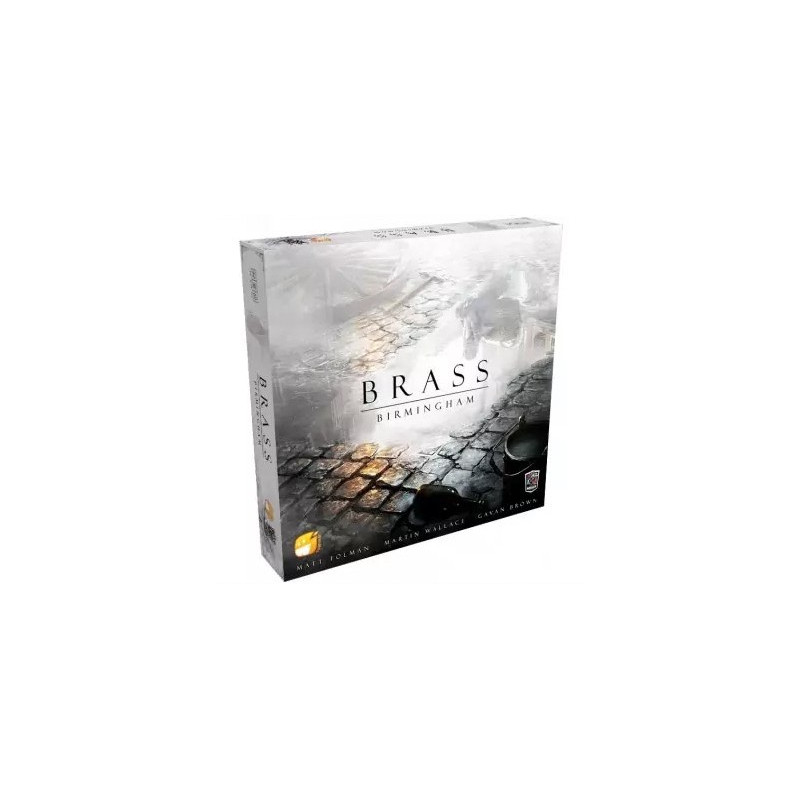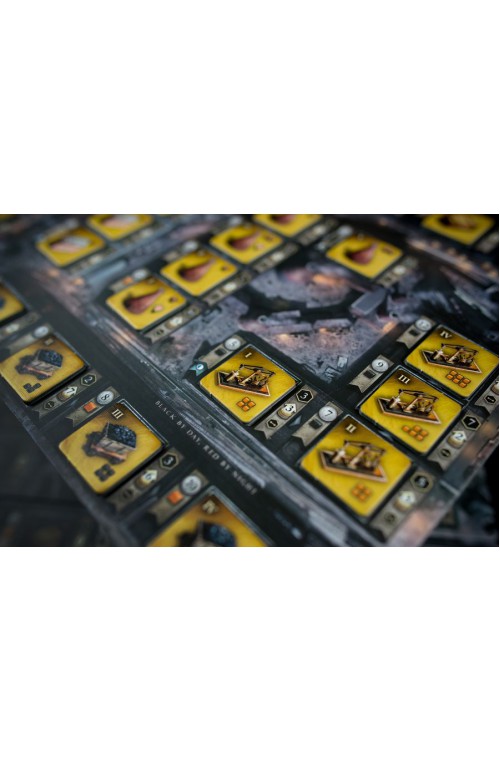

Also there are more spaces for train tracks than canals giving players more opportunities to connect the locations together.
#Brass birmingham 2 players plus#
Trains cost a little more to build than canals plus they also require coal, and as coal can only be spent when it is connected to a source so coal mines become a little more lucrative in the second half of the game. Only stage two or higher buildings remain on the board at this point, which is basically anything better than the starting tiles, then the cards are shuffled and dealt so that the train era can commence. This means that the deck of cards becomes a makeshift timer for each era of the game, players spend the first half of the game building canals and establishing the roots of their business empire, then once the cards run out all of the canals are taken off the board and scored, as well as each flipped building. The cards all feature either a location or a certain industry, players take two actions every turn (except the first) and a card is always always discarded when an action is taken.

What I like best in Brass is how the card-play impacts the game. Each flipped tile awards a player both points and income, which is important because everyone starts with zero income. Iron mills and coal mines enter the game with resources on them and need to be emptied to flip, ships flip automatically when played but they’re super expensive, and cotton mills and docks flip together once they’re linked by canal or train, even when they’re owned by different players. Players will each be building tiles directly off their player board with increasing gains for doing the same tile again, only the tiles don’t actually benefit the player until they are flipped. There are plenty of cotton mills in Manchester, docks in Liverpool and steel mills in Preston, the attention to detail really makes the theme come to life. The board itself shows players which tiles can be played in which locations, accurate to the history of each town and city on the map. Brass features elements that any euro-gamer might find familiar, an individual player board, building tiles and a steadily increasing income of cash as the game progresses. Players each adopt the role of a rival industrialist building mines, mills and docks, as well as the transport links that connect them all together. I’ve had a chance to play both games at every player count now and thankfully they were worth the high price tag.įormally known simply as Brass, Brass Lancashire features a map of the North West of England which was the birthplace of the industrial revolution. I ordered both games as deluxe editions shortly after the Kickstarter campaign ended for a fairly sizable sum of money.

The Roxley releases both came with a standard edition and a deluxe version, upgrading the cardboard money for clay-style poker chips, and making the cardboard tokens and player matts much thicker. I never got a chance to try the original 2007 edition of the game, but I was always curious to play it while at the same time put-off by the awful graphic design and artwork. Brass: Birmingham is a sequel which takes the better elements of the original game and introduces a few new mechanisms, while leaving some of the clunkier rules behind.

Brass: Lancashire is a new edition of an older game with a complete visual overhaul and slightly more streamlined rules which also includes Brass: 2-player board, originally created by members of the Brass community. Reviewing Brass Lancashire, Brass Birmingham and the Alternative Two Player Boardĭuring the first lockdown I managed to get my hands on Roxley’s hugely successful Brass: Lancashire and Brass: Birmingham after hearing so much positive praise for both games.


 0 kommentar(er)
0 kommentar(er)
